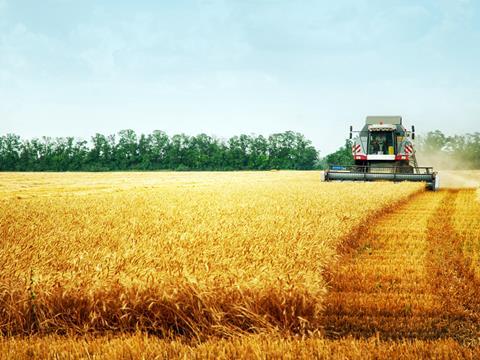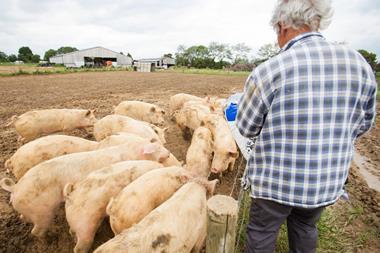
Food and drink bosses have urged the government to shelve measures including the HFSS promotions ban and the plastic packaging tax after warning the supply chain has been thrown into crisis by the war in Ukraine.
A raft of trade bodies told an all-party inquiry yesterday that suppliers were reporting five-fold increases in energy costs, combined with fuel prices that had in some cases trebled because of the conflict.
MPs were told the situation would inevitably lead to increasing food prices in the days and weeks to come with “inflation being piled on inflation”. Ministers were advised they should pause all but “critical” legislation.
Such are the repercussions of the conflict, it emerged some farmers are planting half their normal crops because they cannot afford to grow them due to soaring energy costs. Meanwhile, pig farmers are resorting to slaughtering their entire herds because they can’t feed the animals due to wheat shortages.
Meat industry bosses predicted suppliers would soon have to start “rationing” food, with the hospitality and convenience sector likely to experience the biggest shortages and forced to reduce ranges because supermarkets have more power over their supply chains.
Ministers were also warned that tariffs slapped on Russian imports to the UK earlier today in an attempt to punish Putin’s war machine could rebound on the poorest UK shoppers, with major shortages of fish, pallets and glasses used in the pub trade predicted.
FDF head of policy Jayne Almond told the inquiry suppliers were already reporting widespread shortages of products including wheat, oils (especially sunflower oil), and white fish.
“It’s going to be very hard to manage such increase with such significant disruption across the supply chain,” she said. “We are going to see inflation piled upon inflation. We are concerned of the long-term resilience of the sector,” she said.
She said the federation was calling on ministers to announce a “moratorium” on legislation.
“Let’s pause everything that’s not absolutely critical,” Almond told MPs on the inquiry.
“There are some things under discussion we could pause. Consultations that are important technical consultations but they are not time sensitive could be paused, such as the plastics tax. Put that on pause and let’s think about how chemical recycling fits in and other measures such as the measures on HFSS, which just aren’t ready at the moment and could be made more effective.”
Her call was backed by other food leaders who said it was time for the government to prioritise the crisis above all other matters because of the threat to food security.
NFU VP David Exwood told the hearing farmers faced a stark choice between planting crops they could not afford because of the increase in fertiliser and other costs, or not growing crops at all.
He said many farmers were now “too scared”.
Tony Goodger, head of marketing & communications at the Association of Independent Meat Suppliers, told the inquiry the pressures on the supply chain would see meat producers have to decide which buyers to prioritise, with prisoners, the NHS and care homes likely to be first, followed by supermarkets.
“We saw that in the pandemic the supermarkets took priority because they had the ability to strongarm suppliers,” he said.
“If a form of rationing comes in, I think it’s likely sectors like hospitality and foodservice will get the raw end of the deal again.”
Meanwhile, Andrew Kuyk, director general of the PTF, warned the announcement of 35% tariffs on food products and materials used in food and drink including beverages, cereals, spirits, oil seeds, white fish and fertilisers, would have “very significant” consequences for suppliers and shoppers.
The government said it wanted to maximise the impact on the Russian economy but minimise the impact on UK customers, so had avoided outright bans.
But Kuyk said: “The idea that we can punish Russia without any pain being felt by British shoppers is naïve. It will be poorer families that face a disproportionate impact on food prices.”



















No comments yet